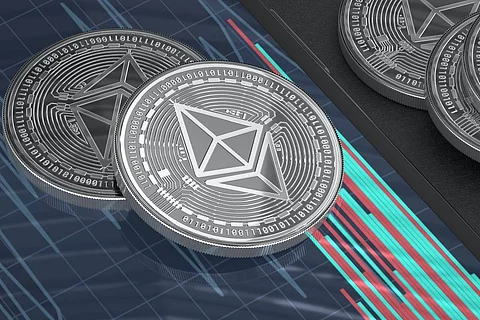What’s the big deal about Account Abstraction (AA) for Ethereum wallets?
Before reading the article, sign up for Cryptogram, a free weekly newsletter on Web3 and crypto.
Before diving into Account Abstraction (AA), we need to understand a few basics about Ethereum (ETH). So, let’s get right after it. Basically, Ethereum can be imagined to be a huge network of computers interconnected with each other responsible for maintaining one true global state. That single global state contains all information related to account balances and smart contract data. Accounts on Ethereum are of two types; Externally Owned Accounts (EOA) and Contract Accounts.
What are EOAs?
EOA, in simple terms, are users. They have three properties:
- Balance: How much ETH account currently holds
- Nonce: Ensures every transaction is unique
- Address: To uniquely identify account on the blockchain
How to prove account ownership?
Every account on Ethereum is associated with a cryptographic object called a signer. A signer is made of two keys: a private key and a public key. The private key can be used to sign digital messages, and the public key can enable anyone to verify that a given signature was signed by its corresponding private key.
All the complicated math behind the cryptography makes sure that if I give you my public key you have no way to derive my private key, and if I give you a message signed with my private key you can be sure that I’m the only one who could have signed.
The important caveat is that an EOA is tightly coupled to a signer through its address, which is derived from the public key of the signer, as well as its hard coded logic which specifies exactly what is a valid signature from the signer.
The concept of Account (the object holding your tokens) and the concept of Signer (the object authorized to move these tokens) are basically the same thing! If you have a private key you automatically have an account at the associated address, and to own an account at a given address you must be in possession of the corresponding private key. That logic is hardcoded at the heart of the EVM.
This comes down to one major flaw: Because your private key is your account, losing your key means losing your account.
What’s the solution here?
Though Hardware wallet is an obvious solution, scaling it to billion users is a daunting task if seed phrases are the norm.
The solution is to turn accounts into smart contracts with their own logic to define what a valid transaction is. In computer science jargon, it is said that the account has been abstracted, hence the term: account abstraction.
And we can immediately see why it's so useful. It’s no longer one-account-fits-all-use-cases. Instead, each user can have an account that is adapted to their needs. We will look at those benefits in detail in the next week’s edition.
Use promocode TNM51 at www.giottus.com/profile#promo after registration to get Rs.51 worth free Bitcoin.
Disclaimer: This article was authored by Giottus Crypto Exchange as a part of a paid partnership with The News Minute. Crypto-asset or cryptocurrency investments are subject to market risks such as volatility and have no guaranteed returns. Please do your own research before investing and seek independent legal/financial advice if you are unsure about the investments.

